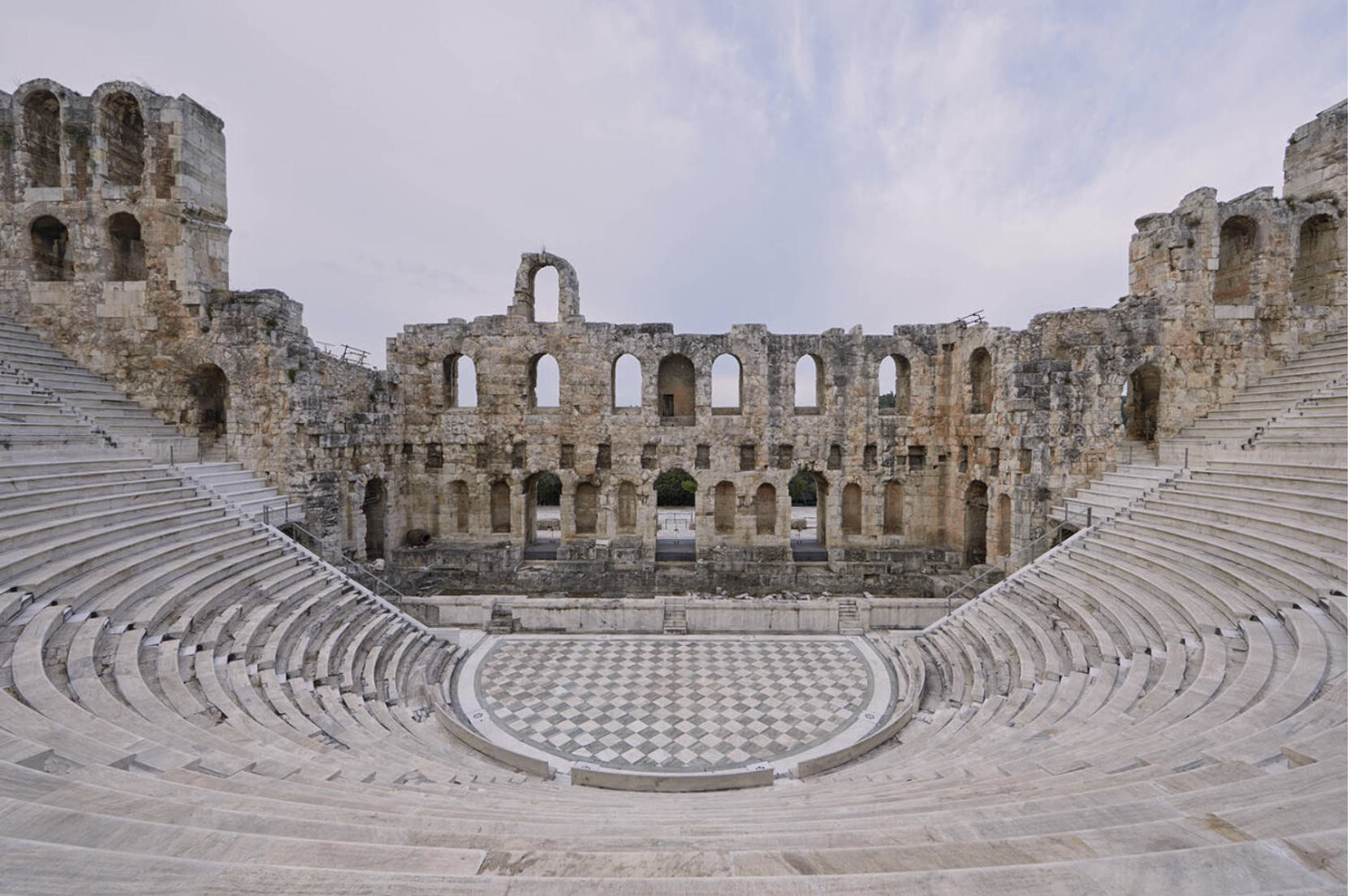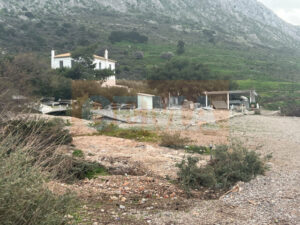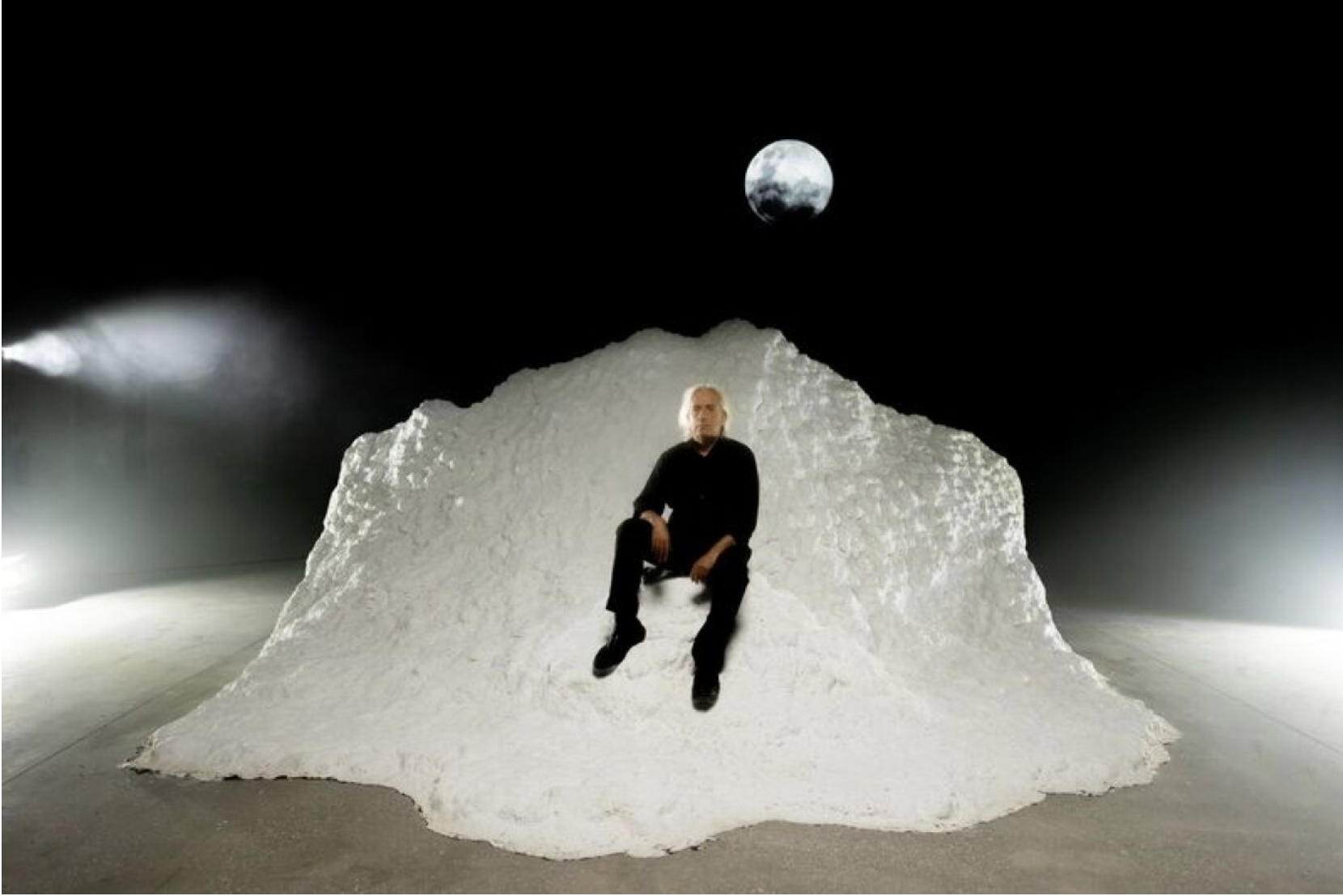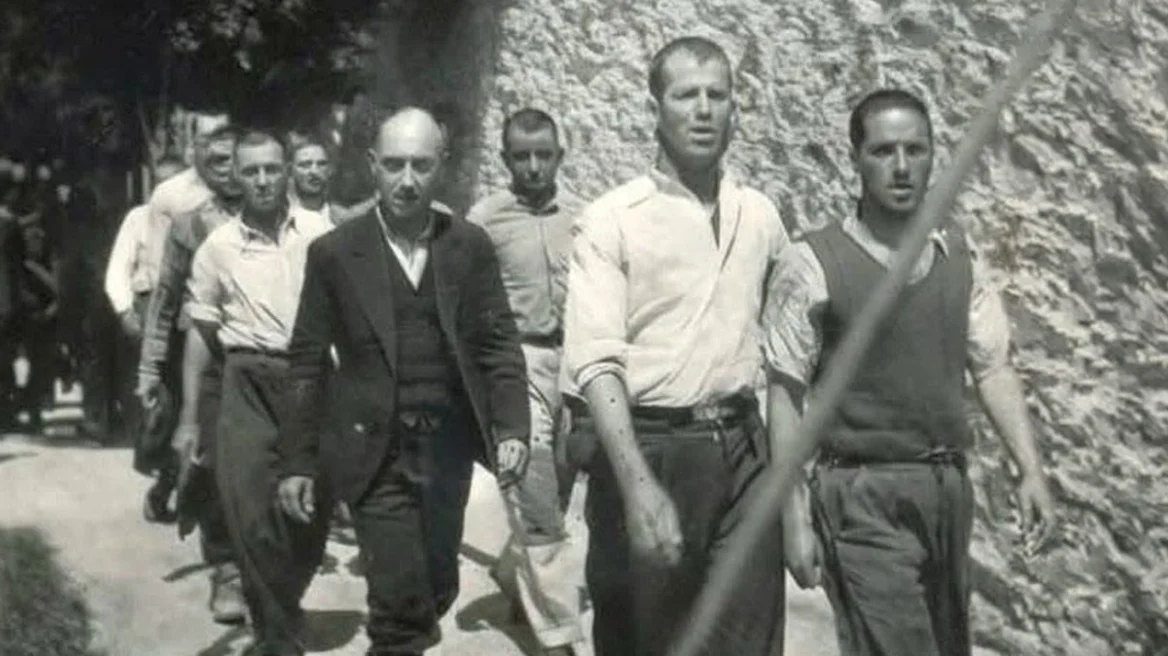Stathis Kalyvas, then. Established and top-tier. Which of his roles should I mention? Political scientist, author, and full professor of Political Science and International Relations at prestigious universities: Oxford, Chicago, New York, Ohio. I might have even forgotten one…
Many times when I tried to speak with him, I found him either in England or in the U.S. A permanent traveler, with suitcases full of ideas, writings, thoughts, opinions, and research. Up close, entirely non-conformist. Without a suit, tie, or pompous attitude. He resembles a character from cinematic films, someone familiar who, when they open their mouth, pushes your thoughts forward. His speech is a perfect blend of arguments and simplicity. A reasoned discourse and comprehensible. Stathis, then, perhaps the most suitable surgeon for the formation called SYRIZA. From the electoral triumph of 2015 to the rout of 2025.

Scene 1
The Interconnected Vessels of KKE Interior – PASOK
Dimitris Danikas: Ten years from SYRIZA’s electoral triumph in 2015 to its disaster in 2025.
Stathis Kalyvas: What was SYRIZA? The transformation of the Coalition. What was the Coalition? The Coalition was the transformation of KKE Interior, initially. What was KKE Interior? The liberal, let’s say, version of the Left. Especially in Kyriakos’s version when it became EAR. This is the hard core of a liberal version that was never strong among the masses but had great appeal to the elites. If you look, a large part of PASOK’s advisers in the ministries came from the former KKE Interior.
D.D.: So KKE Interior with PASOK, interconnected vessels.
S.K.: They had an indirect relationship. It supplied part of the intellectual world. Leonidas Kyrkos was different from KKE because he was very outward-facing. That is, while KKE was enclosed under the name of orthodoxy, holding its own world, it could not go further, Kyrkos always tried to seek alliances — to his own detriment in the end. But the personnel of KKE Interior staffed universities, the intellectual, and journalistic world to a great extent, so it had a much broader reach.
D.D.: How does the enclosed KKE get “infinitely” more votes than the open KKE Interior?
S.K.: Because KKE has a big weapon in its hands, which is that it represents the Soviet Union, the Mecca for people — especially those who believed they sacrificed their lives and therefore needed a solid foundation. It also had the significant control of the party apparatus, which is a huge weapon. We must not confuse electoral success with social reach, they are two separate things. What happened afterward? With EAR we see the division of the Bania group — this is a very important event that we overlook, because Bania’s group was very small, but we will see it play a very big role later. These were the hardliners of KKE Interior, to put it bluntly. And of course, in the KKE split that happened in the early ‘90s, a part of KKE made up essentially of members from the anti-junta struggle, the younger generation, like Damanaki, Alavanos, Androulakis, tried to transform KKE. They failed, were expelled from the party, and they stayed in the Coalition. This is the base that essentially put KKE Interior on a new track. So we have these three main factions: the liberal one of Kyrkos and Papagiannakis, the more hardcore one, the people coming from KKE, and the third faction, Bania’s group.
D.D.: Were Bania’s people in the Coalition?
S.K.: They rejoined later and played a very significant role in the transformation of the Coalition into SYRIZA. So these people essentially pushed the former liberal KKE Interior into a path of hardening, which initially had no visible results. Alavanos’s decision to place Tsipras as essentially a controlled leader was successful for the party, but a failure for him, because it would eventually lead to his downfall. But the first signs we see that SYRIZA is a different formation from the old Coalition are essentially the events of December 2008.

Scene 2
Implicitly supporting hooded figures
D.D.: So in 2008, the formation of SYRIZA is definitively shaped.
S.K.: Yes, with events like the murder of Grigoropoulos and the arson in Athens. There we see that SYRIZA supports these situations.
D.D.: Does it support the burning of Athens?
S.K.: Of course, and it publishes the famous calendar where Avgi essentially celebrates the burning of the Christmas tree, and we see a very strong support for these phenomena.
D.D.: So, it supports the hooded figures.
S.K.: Indirectly, but certainly.
D.D.: Does it have ties with them?
S.K.: It’s hard to say. There are, let’s say, individuals who move on the fringes of this movement, like Nikos Giannopoulos, who are very closely connected to Bania’s group, which later provides ministers to the SYRIZA government.
D.D.: Like?
S.K.: Tasia Christodoulopoulou and her husband, Thodoris Dritsas. They are people from this circle.
D.D.: Were they liberals and at the same time hardcore?
S.K.: No. They have an element that one could describe as “activist.” They believe that bottom-up processes should be incentivized, which in their imagination facilitate a revolution, an upheaval, a reshaping of things in a non-institutional way. So, the SYRIZA phenomenon was already formed in 2008. You see, for example, in some polls, that Alavanos starts rising. Before Tsipras, he had shown upward momentum with a world that was dissatisfied with the situation, which wasn’t being expressed anti-systemically by KKE. But of course, this thing, under “normal” conditions, does not translate into electoral results. What will give SYRIZA the big leap is the crisis. The crisis essentially delegitimizes PASOK for two reasons. One is that PASOK has identified with a series of choices, so for many of its supporters, despite generating prosperity, it is seen as a betrayal of Andreas Papandreou’s legacy.
D.D.: How so?
S.K.: This demagogic populism, let’s say, that in Simitis’ era essentially takes a back seat. The constant condemnation of strong pro-Europeanism. And Papandreou was in favor, but rhetorically he never praised Europe as Simitis did. Simitis came to be seen as an accountant, essentially a right-wing figure. And this didn’t sit well with the mentality of many of PASOK’s supporters, who, however, remain with the party because PASOK is inclusive. It has the ability, mainly through the clientelist system, to retain large masses.

Scene 3
SYRIZA’s DNA matches with Andreas
D.D.: However, PASOK had an incredible ability to constantly transform, to change according to the times.
S.K.: They had to keep everyone happy. When George Papandreou took over the leadership of the party, for those who were dissatisfied with Simitis, it was seen as a potential return to tradition and heritage – because of the name. So, when George Papandreou won the elections, these people felt vindicated. But his handling of the crisis was a huge disappointment because his choices were in contrast to PASOK’s spirit. At the same time, the rise of Evangelos Venizelos, who is also a hated figure in this category.
D.D.: Hated, why?
S.K.: He is seen as someone who, let’s say, challenges the legacy of the bloodline. I am often surprised by the hatred for Venizelos among PASOK supporters. Especially when he takes on George Papandreou. One represents the party’s purity and the legacy of Andreas, while the other is seen, in a way, as a usurper. You can see this in the clashes when Venizelos tries to take the party. And when he finally takes it, a large part of Papandreou’s PASOK leaves – or at least becomes available. This, combined with the crisis that delegitimizes PASOK, because the crisis blows up in George’s hands, his evident inability to handle problems, the fiasco of the referendum after the Cannes summit in November 2011…
D.D.: With Sarkozy climbing on the table…
S.K.: … the fact that, essentially, he resigns from the prime ministership, at first even retracting it, then coming back, all this sense that there is no leadership anymore. And we also have the phenomenon of a significant percentage of PASOK’s MPs refusing to vote for the various memorandums. Gradually, the party begins to crumble. And suddenly, space is created to the left of PASOK. Because, don’t forget, it’s this rhetoric of the post-dictatorship period and populism: that there are better ways, that foreigners cannot impose their choices on us.
D.D.: Who will take the scepter…
S.K.: There are two attempts being made. One is Kouvellis’ DIMAR, representing the more liberal KKE Interior, and for a brief period, you see in the polls that DIMAR and SYRIZA are together, the picture is not yet clear. And at some point, just before the May 2012 elections, SYRIZA makes the big leap. And I believe this has to do with two characteristics of theirs: first, Tsipras and his personality, which is both communicative and adopts a hard, radical agenda, while Kouvellis is much more cautious; and second, that SYRIZA’s DNA aligns more with Andreas’ legacy.
D.D.: That’s why Tsipras constantly refers to Andreas.
S.K.: Don’t forget that in his speeches back then, in 2014, with the tone of his voice and his style, he mimics Andreas.
Scene 4
The “Tsipras” Phenomenon and its relationship with New Democracy
D.D.: Samaras, who said he would burn the memorandum, didn’t he help boost SYRIZA?
S.K.: Obviously. And there is fatigue, although, if you look at the economic aspects of the crisis, 2013 was the worst year. The shock was so strong that there was a lot of anger, and a large part of the population was extremely dissatisfied. And to this audience, SYRIZA’s rhetoric, and Tsipras’, resonates, namely that there is another, easier, and nationally dignified way. They will tell them “no more memorandums” and they’ll accept it because they have no other choice. And it’s clear that this message fits perfectly with the Right of New Democracy, specifically with Kammenos – they speak the same language.
D.D.: So, the “Tsipras and SYRIZA” phenomenon is also related to New Democracy, in a sense.
S.K.: It is related to New Democracy, which, don’t forget, after 2004, became more like PASOK. I mean, they adopted the view that there are easy ways, that the economy is shielded. It’s also connected to PASOK’s legacy. It speaks a language that refers to the earliest PASOK of Andreas Papandreou. The language of national dignity. That there are other, easier ways, that life isn’t as we see it, harsh and competitive, and that sometimes you have to make tough sacrifices to move forward, which was the language of the householders that got delegitimized. And this thing wins the 2015 elections in January – not by a huge margin.
D.D.: And Tsipras takes over the government in 2015. He started from 3% and shot up to 34%-35%.
S.K.: With milestones, of course. One of them being the double elections of May and June 2012, where SYRIZA becomes the opposition. And essentially, we have a migration of a large part of PASOK’s voters and some of its staff. Kotsakas, the right-hand man of Tsohatzopoulos, and various others, all switch to SYRIZA. We also have all the contacts made then with various communication experts and journalists acting as intermediaries between big economic interests and the media to normalize Tsipras. Many people with money and power, seeing that Tsipras is coming, bet on him. This was also when he met Psycharis, the “cat of the Himalayas.” All this chatter, where the idea was that Tsipras could essentially become someone who would save the political system, not destroy it. And this was seen by people with great economic influence, like Gianna Angelopoulou, but also former New Democracy officials. I remember an article by former Deputy Minister Sofia Kalantzakou in favor of Tsipras. She wrote that he represents something new, a new force that would replace the old, tired, corrupt, suffering, and devalued generation of politicians who drove the country to the rocks.

Scene 5
The role of the middle class
D.D.: Didn’t the crisis provide the objective conditions for deep, beneficial reforms?
S.K.: Yes, there were. But this required much greater possibilities. We saw reforms that set the country back, and I think they’ve become identified in people’s minds with the infamous quote by Baltas: “excellence is a stigma.” That is, the perception that we shouldn’t be innovative, dynamic, move forward, or be extroverted, but rather turn to a direction that’s outdated and left behind by History and by things. In the name of a revenge, marketed as “first time Left.” In my view, “first time Left” was PASOK in 1981. PASOK came to power as a left-wing party, with a radical message.
D.D.: PASOK a left-wing party?
S.K.: Socialist. It wasn’t right-wing.
D.D.: Social democracy.
S.K.: Papandreou spoke against social democracy. He said that there was a third way between communism and social democracy. And don’t forget, as Ilias Iliou used to say (though I don’t recall his exact words), Papandreou was a super-revolutionary, more left-wing than the Left. When Papandreou appeared in Greece in 1974, he created a tremendous wave of enthusiasm because he had this very strong radical speech. And all of Papandreou’s politics from 1981 onward was based on exploiting Left votes, using the boogeyman of the Right. Every time elections came, he forgot his policies that didn’t sit well with the Left, brought the specter of the Right to the forefront, and suddenly, KKE supporters voted for PASOK, resulting in the Communist Left being essentially stuck at lower percentages. And this dynamic led to the first Coalition of 1988-89 and ultimately to convergence.
D.D.: And that’s why the Mitsotakis-Florakis agreement was made.
S.K.: But if you look at the difference between the first elections of 1989 and the second ones that took place at the beginning of 1990, the Left loses – and some of it votes PASOK again exactly because it never accepted the agreement with the Right. But all of this eventually came back and took revenge on PASOK in the first phase. Because the people who had been trained in the logic of this tradition could never accept that PASOK would manage a memorandum. And the rhetoric with which they spoke to this world was the rhetoric that Tsipras very cleverly projected. Very cleverly, but ultimately short-lived. What struck me the most was how he won the September elections after making the “turnaround,” losing almost a third of his party, which left.
D.D.: How did he win them?
S.K.: He won them because there was no alternative at the time, and people weren’t ready to admit their mistake. And they said: “Let’s give Tsipras a chance.” Papandreou used to take loans and distribute. Or he would take, essentially sacrificing other resources, and distribute. Here we were in a reality where to distribute to some, you had to take from others. That is, you had to make real class politics. And that’s why the middle class punished him. They were the ones who gave him power, and they were the ones who took it away.
Scene 6
One split follows another
D.D.: And the collapse begins.
S.K.: The collapse doesn’t happen all at once. The first stage is the 2019 European elections, where we suffer a major defeat, but Tsipras manages to recover in the subsequent elections. Because once again, anti-right-wing unity kicks in. So, the 31.53% he got in 2019 creates the illusion that SYRIZA is now a permanent player in the game, that they are here to stay, and that PASOK will never be revived. But this also has another side: you have to make the transition, to become a center-left party. The pillar of a new two-party system that will operate under new conditions. Tsipras doesn’t understand this. He continues with the two-party logic of the 1980s, polarizing and directly attacking Mitsotakis, which leads to the enormous defeat he faces in the 2023 elections.
D.D.: In 2023, he gets 18% and resigns.
S.K.: So, here we essentially have the collapse of this thing, which could have happened sooner if PASOK had more dynamic leaders who could take advantage of this fall.
D.D.: The splits begin.
S.K.: The big split, let’s not forget, happens in 2015. That’s when all those we mentioned earlier, the hardest ones, the successors of the Banias group, leave. They leave and fail completely. Like Konstantopoulou and Varoufakis at first. None of them manage to make a mark—and this tells us something about the type of support Tsipras had, where the middle class had the upper hand. And the middle class didn’t want revolution; they just wanted to somehow return to the good times. The good times with a decent income, without necessarily being competitive. And all of this is invested with a language that defines the left-wing hegemony of the Post-Junta period, meaning you could win without working, you could be against foreigners and simultaneously want to imitate them, you could be against capitalism and in favor of consumption. At the same time, the euro creates the illusion that we have strong money—the interest rates drop, money becomes cheap. And then we essentially have borrowing for consumption—because that’s what happens—the expansion of public spending, extreme prescription in pharmaceuticals and healthcare, and of course the pensions issue. All these things contribute to a huge hole that can never be filled.

Scene 7
Polakis fits better with the far-right
D.D.: So, we also have the 2023 split, when the New Left leaves.
S.K.: These things now matter much less, because I believe the critical moment is the huge defeat of 18%. It’s not just the low percentage, it’s the fact that they really didn’t see it coming. They thought that with an easy anti-Mitsotakis approach, by insulting Koulis, that this would resonate with the people, that it would be enough. That being anti-right-wing would be enough to win.
D.D.: Like what Andreas did.
S.K.: Yes, but those times were over. I think that was the big shock. In my opinion, SYRIZA dies then. With the 18% and Tsipras’ resignation. What happens after that is a parody, a death rattle. The election of Kasselakis, the departure of the New Left, the events of the last congress with the expulsion of Kasselakis—all these things now take on a parodic tone. The big issue is what will fill this void and who will take this part. I believe there are two parts: one is the traditional faithful leftists who will go to various small parties, and then there’s a more opportunistic part. Among them, some will return to PASOK and some are available for anti-systemic experiments, which might even lean far-right. That is, I wouldn’t be surprised to see a segment of people shift directly from the Left to the Far Right. If a politician emerges who speaks the language of nationalism and national pride…
D.D.: Velopoulos, for instance.
S.K.: But Velopoulos still has a lot of nationalistic elements. If he speaks in a more modern way, he’ll attract that crowd.
D.D.: Won’t they go to PASOK?
S.K.: Not many, because PASOK has nothing to offer. Moreover, PASOK isn’t very convincing. It’s a system party, that’s how it’s perceived. While this crowd, which is available, has stronger anti-systemic tendencies.
D.D.: So, how do you see the future? Does Kasselakis have any hope?
S.K.: I see it as difficult because he’s communicative, but I don’t think he easily connects with a crowd that wants a more brutal leader. And of course, he doesn’t have any mechanisms in his hands. In the best case, Kasselakis with the party he built might, if he doesn’t get bored (because he gets bored easily), stay in the game and maybe get into parliament with 3%-4%. That’s one possibility.
D.D.: Have you noticed that now SYRIZA members wear ties and suits? That they don’t speak against the system anymore? Their rhetoric is almost like PASOK’s.
S.K.: Except for Polakis, who would fit better with the Far Right than with SYRIZA.
Scene 8
In hard times, Greeks will choose Mitsotakis
D.D.: How do you explain that many people who support Kyriakos believe that Putin is a great leader?
S.K.: Well, this is the legacy of the Post-Junta period. We like to criticize the Americans and the West. But on the other hand, don’t forget this strange dichotomy, the almost schizophrenic contradiction of the Greek soul in the Post-Junta era, which is that we want to be with the West and simultaneously curse it.
D.D.: How do you explain this?
S.K.: We’re a bit of cheap tough guys, but we like the toughness, we like showing it off, talking about it. Some people like it—at least a certain crowd does. But on the other hand, when it comes to choices and our wallets, then we say, wait a minute. PASOK expressed this schizophrenia—and it nurtured, strengthened, and amplified it. It gathered during the crisis, but it remains within us. It’s a form of poorly understood pride. We don’t want to appear like we follow others, but we want to be ahead, carving our own path and telling others. But on the other hand, we want the benefits that come from being in a big, secure alliance, being with the West.
D.D.: Has the Greek person balanced this contradiction?
S.K.: He hasn’t balanced it; he’s constantly negotiating. He has a dialectic. When things get tough, he’ll bring in Mitsotakis to manage things properly, to feel secure. If he feels really secure, then he’ll start shouting again and acting tough. And of course, during the crisis, these things also had an existential dimension. It was a huge shock. No one expected something like that to happen.
D.D.: They expected it.
S.K.: They expected there to be a crisis, but it was the greatest crisis in an advanced country that we know of in history. Greece’s GDP loss at that time exceeded that of the United States in the 1930s. It was truly a huge shock. We’ve forgotten all about that now, but I remember many economists back then saying that such a crisis couldn’t be managed under democratic conditions. The fact that post-junta democracy, that is, the institutions of the post-junta period, survived, I believe is an international example of the resilience of institutions, which we tend to underestimate.
D.D.: But the big bankruptcy wasn’t caused by PASOK. It was by Karamanlis, by New Democracy. That’s when the deficit soared. Maybe he followed Papandreou’s example?
S.K.: It wasn’t just borrowing and that things got out of hand. It was that from ’81 onwards, institutions were corroded. Measures that we overlook, like the abolition of general directors in the public administration, the complete transformation of the public administration and the military into a patronage system. The fact that you have unionists everywhere, all these things dismantled the state’s ability to deal with such situations.
D.D.: Maybe everything ultimately revolves around Andreas Papandreou? SYRIZA revolves around him, and junior Karamanlis too?
S.K.: Look, I believe it had a negative influence.
D.D.: But it still persists.
S.K.: It’s greatly diminished. If after ’74, instead of PASOK, you had a serious social-democratic center-left party, like Gonzalez in Spain, and didn’t have Papandreou’s excesses, it would have been much better for Greece.

Conclusion
Communist Left has permeated our consciousness and nurtured schizophrenia
As he was leaving, he mentioned the role of the KKE and KNE.
S.K.: The KKE, the KNE specifically, was like the Great School of the Nation. Tens of thousands of young people went through it, got trained, picked up ideas, gained a DNA that stays with you when you leave. Some things stick. Some good, some bad. Let’s not underestimate the social contribution of the communist Left.
Let me give you another example. I went recently and saw the play “Mataroa on the Horizon.” The “Mataroa” was the ship that took a large number of young Greek intellectuals, with scholarships from the French state, in 1945. They went to France, and most of them became prominent. That’s how Axelos, Castoriadis, and many others left. What I understood from the play is that from start to finish, it’s based on a version of the Civil War, where only two sides clash: the good ones, who are the resistance fighters, the warriors, the heroes, and the others, who are the collaborators, the black marketeers, the traitors. This overly simplistic and untrue schema is everywhere in the arts. It has permeated almost the subconscious of many people.
That the Left represents something heroic, something good, even though it may have setbacks. In Greece, we never had a “grounding,” a recognition that all these years we supported a regime, the Soviet Union, which was criminal. Even today, these people still say: “No, that’s the theory of the two extremes, you can’t equate communism, which had good intentions, with Nazism and fascism, they’re not the same thing.”
At the same time, communism in all its forms was really a regime worse than authoritarian. This acknowledgment has never been made. And from that, much of the pro-Putin sentiment arises. So, in this sense, I would say that the communist Left has permeated our consciousness and nurtured this schizophrenia.
D.D.: But don’t forget that many people, one of them being Manolis Anagnostakis, a great poet, never believed in the Soviet model. They believed that all this National Resistance story was a heroism that wouldn’t end up turning Greece into the Soviet Union.
S.K.: But who is more representative? I read an old interview with Menelaos Loundemis, who had just returned from Eastern Europe after the Junta. And he looked around and said, “The morals in Greece have decayed, how do you all live like this? You’re all hippies,” in his way.
Menelaos Loundemis has much greater influence on the Greek psyche than Manolis Anagnostakis. Manolis Anagnostakis is the Simitis of the spirit, you get it? Menelaos Loundemis is the Polakis of the spirit.
Then he added and corrected: “The comparison is exaggerated. I wish Polakis were like Loundemis. That’s something else. Besides, let’s not forget the legendary ‘A child counts the stars.'”
Ask me anything
Explore related questions





